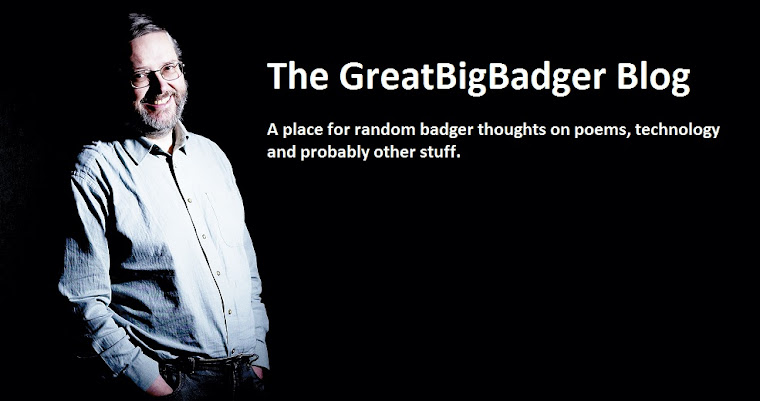I wondered for a long time how to use it: posters, obviously, but how often do you get the chance to use A1, A2 or even A3 posters? Then, over the last few months, an idea occurred to me. How about revisiting the old publishing form of a broadsheet, one big sheet filled with text - song lyrics or poems?
The advantage, from the point of view of the producer (me), is that it doesn't involve collation, folding, binding, trimming or any of the other tasks implicit in making a traditional book or magazine. Yes, you may have to fold it down to make it manageable or send it through the post, but it should be a lot easier to put together. Notice that word 'should'; I'll come to it again in a bit.
In November, I set up a closed Facebook group of poets who all aimed to write a poem a day for the 30 days of the month. It was a great group, convivial and hard working, very open to putting their work up for comment. At the end of the month, there was a feeling that we'd like it to go on in some form so, perhaps rashly, I offered to put together a little (actually quite a big) anthology of some of the poems written in the month.
Everybody sent me up to 60 lines of their work and I used Microsoft Publisher (a much under-rated desktop publishing tool, in my opinion) to design a Broadsheet, 24 inches square. I used a simple layout, with a lot of space to give the poems room and it only took a couple of afternoons to put it all together.
All that remained was the printing, which should have been the easy part. The printer came with a 24-inch roll of paper already mounted, so all I had to do was print. The printer is clever enough to cut the pages when it has finished printing and catches them in a cloth hopper underneath. Very straightforward, once I'd managed to persuade it that 24 inches square is a perfectly respectable custom paper size.
So I printed all the first sides from the roll and they ended up as little mini rolls in the hopper. Trouble was, when turned over and straightened out, the pages were still curled. Feeding them back into the printer as single sheets caused the leading edge to curl up off the printer platen and the printhead caught the edge of the sheet, smudging and tearing it.
I wasted a lot of paper before I developed a technique of rolling the sheets, in tens, around an empty gift wrap roll core, taping them rolled and leaving them a day. At the end of that, they were flat enough to print and then it was only the folding to complete each Broadsheet.
I'm happy with the result and, if you're a member of the November 2012 Poem-A-Day Facebook group, you can buy one from here by clicking the PayPal button at the bottom of this post; I'll have your address. If you're not a member, please don't try and buy a copy.
This Broadsheet is closed circulation, so the poets can still submit their poems to magazines or competitions, and I've only printed enough copies to cover the pre-orders. Please only pay if you're a member of the Facebook group. If you're not a group member and you pay me, I may not be able to return your money - you have been warned.



.jpg)


